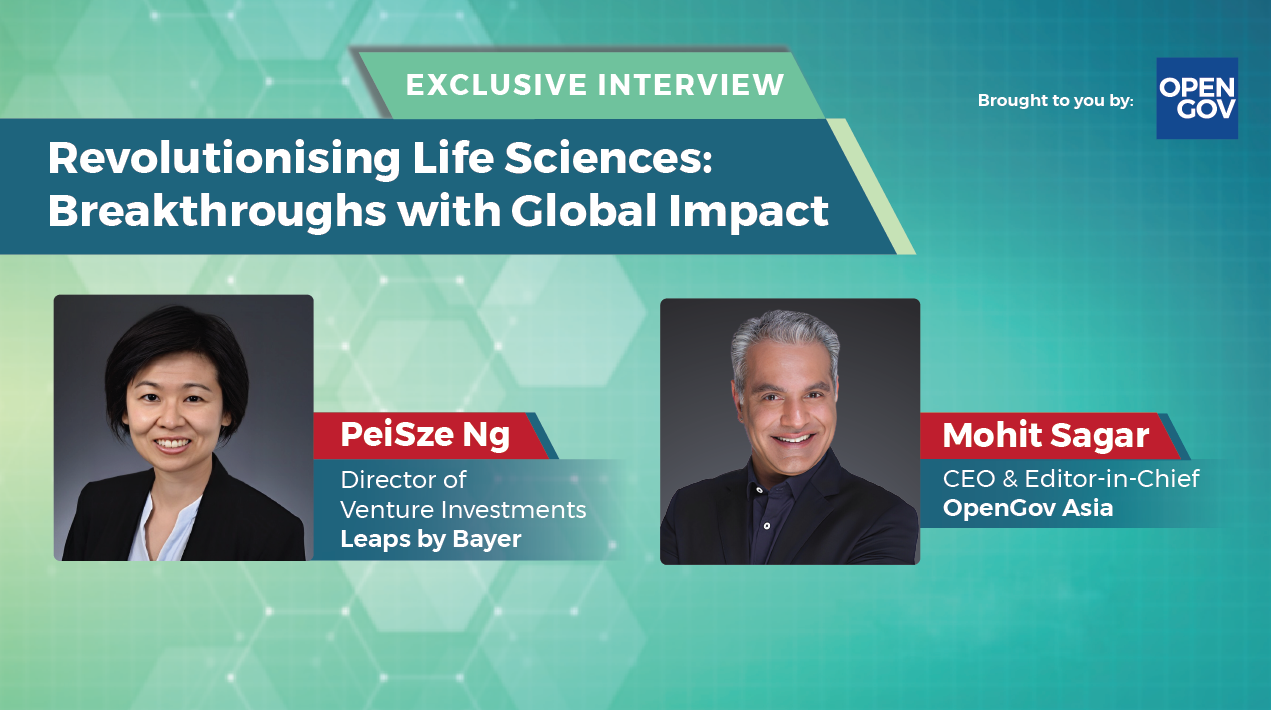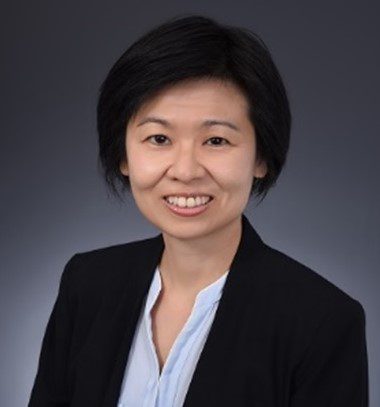
Incorporating technology and innovative solutions in agriculture and healthcare can address global challenges and issues such as inadequate food supplies, undernourishment and the spread of infectious diseases.
Precision agriculture, plant biotechnology, digital health, genomics and personalised medicine are just some of the innovative solutions that are transforming these sectors. By embracing these advancements, industries and governments can enhance food security, nutrition and public health while promoting a more sustainable future for everyone.
In addition, breakthroughs with global impact have the potential to improve the lives of people in developing and developed countries alike. They can also extend beyond their primary applications, giving rise to novel discoveries and advancements.
It is not surprising that discoveries with global impact frequently stem from collaboration and cross-disciplinary endeavours. Scientists, engineers, and entrepreneurs from different countries and domains come together to tackle complex challenges and develop solutions that benefit society.
Such collaboration can spark new technologies, products and services that exert a profound effect on the global economy and environment.
World-Changing Innovations
 PeiSze Ng, Director of Venture Investments, Leaps by Bayer acknowledges that the healthcare industry has seen significant changes in recent times. One of the most notable changes is the emergence of gene therapy, which represents a significant shift from conventional approaches like disease management to curative treatments.
PeiSze Ng, Director of Venture Investments, Leaps by Bayer acknowledges that the healthcare industry has seen significant changes in recent times. One of the most notable changes is the emergence of gene therapy, which represents a significant shift from conventional approaches like disease management to curative treatments.
The rapid uptake of technology, not limited to the medical field but across diverse industries, has been spurred on by the pandemic. Gene therapy and digital technologies have emerged as two key areas driving change and transformation within the healthcare sector.
“While the cost of innovation, including gene therapy and digital technologies, has been a concern, progress is being made and as more companies enter the market, there is a potential to drive down the costs,” PeiSze explains.
She believes that the outbreak has hastened the adoption of digital technologies in the healthcare industry, such as telemedicine and remote monitoring. These innovations have the potential to increase the affordability and accessibility of healthcare, particularly in large countries where ease of access to medical services may be limited.
The use of data collected from these technologies can help clinicians make better decisions, reduce hospitalisations, and in return lower healthcare costs. However, challenges such as data privacy, cybersecurity and reimbursement for digital solutions still need to be addressed to ensure widespread adoption and acceptance.
Food security, nutrition and sustainability are critical areas that require support in today’s world. Addressing these challenges will necessitate the deployment of innovative technological solutions in agriculture to ensure equitable distribution of and better accessibility to nutrition.
“Digital farming has the potential to improve efficiency, sustainability and productivity in the agriculture industry,” PeiSze is convinced.
She emphasises the importance of smart farming, which leverages digital technology and data management to enhance agriculture yield. Potential advantages include increased productivity and decreased costs through the optimisation of resources such as fertilizers and pesticides.
For instance, sensors can be used to monitor soil nutrient levels, providing farmers with information on the appropriate type and amount of fertilizers and pesticides needed. This can lead to more sustainable agriculture practices and better environmental outcomes.
Additionally, technologies such as drones can help reduce labour costs and increase productivity, especially in the context of an ageing population, urbanisation, climate change and other planet concerns. Sustainable farming practices and advising farmers on crop selection have a substantial impact on productivity and livelihoods.
Despite the potential benefits of digitalisation and mechanisation in agriculture, several challenges remain. These include the need for adequate infrastructure and internet connectivity, the costs associated with adopting new technologies and the necessity for a mindset change among traditional farmers.
PeiSze suggests that government and farming cooperatives can play a role in facilitating awareness and driving change towards more sustainable farming practices. Advances in technology and science can be applied to both healthcare and agriculture, she says, citing gene editing as an example.
“Gene editing can be used to treat human diseases and the same technology when applied to agriculture can help to increase crop productivity such as the introduction of drought-resistant genes in plants. Biological tools can be applied to tackle various challenges across multiple disciplines.”
With regard to the adoption of technologies by rural communities, PeiSze cited two key topics accessibility and affordability. While internet connectivity and smartphones have improved accessibility, affordability remains a complex issue that requires collaboration between public and private sectors, regulators and other stakeholders.
She is excited about breakthroughs made in the life sciences but it is important for these developments to be scaled and adopted globally. Advancements in technology and its increased uptake can lead to better medicines and improved food production with the ultimate goal to improve human lives and livelihoods.
Urban Ideas and Solutions Through LKYGBPC
The Lee Kuan Yew Global Business Plan Competition (LKYGBPC), which began in 2001, is a biennial global university start-up competition hosted in Singapore. Organised by Singapore Management University’s Institute of Innovation and Entrepreneurship, it focuses on urban ideas and solutions developed by student founders and early-stage start-ups.
PeiSze applauds an ‘all hands-on deck’ approach to stimulate innovation among youth and entrepreneurs. She recognises that it can be a challenging path and underscores the significance of providing support through competitions, mentorship programmes, networking events and other initiatives to assist them in succeeding.
She is a strong believer that “activities that foster innovation in young people and entrepreneurs should be supported but mentorship, engagement with industry expertise and networking bring greater value to entrepreneurs than money.”
Mentorship is critical to the success of an entrepreneur and relationships established through mentorship should be enduring. She opined that pitch competitions that provide mentorship opportunities and access to a network of individuals who can support entrepreneurs throughout their journey are of high value
PeiSze Ng has a passion for science and technology and has been working in the healthcare industry for almost two decades. She is currently exploring opportunities in agriculture in Asia and finds it fascinating how science and technology can be applied in healthcare and agriculture to enhance people’s lives. Additionally, she enjoys meeting innovative entrepreneurs who are working on various projects, such as financing smallholder farmers.
Reflecting on the rapid pace of innovation and regulatory approvals during the pandemic, PeiSze hopes that this level of urgency and collaboration will continue in the future. She acknowledges the importance of closer collaboration between regulatory bodies, governments and industries such as pharma and agriculture.
Such cooperation can be a powerful tool for addressing challenges and advancing innovation in the future while balancing safety and efficacy.
In addition to technological advancements, PeiSze Ng acknowledges the importance of raising awareness and providing education to address concerns and issues surrounding technologies such as gene editing in agriculture and mRNA vaccines in healthcare.
She realises that there may be misconceptions and fears around these technologies and believes that education and mindset adjustment are crucial in promoting their safe and effective use. By providing accurate information and encouraging open dialogue, she hopes to foster greater acceptance and understanding of these technologies in society.
Paradigm shifts and cultural adaptations can be challenging when it comes to implementing organisational or societal transformations. However, she views them as a natural aspect of life and not necessarily an impediment but rather an opportunity for development and positive transformation.
PeiSze recognizes the potential of breakthroughs in the life sciences field to advance progress in human health and agriculture. However, she acknowledges that resistance to change can impede progress and development.
“People are generally averse to change and new technologies as a result of societal norms and upbringing, but it is important to recognise that adaption to change is critical for growth and future development in the creation of a better world,” PeiSze concludes.
















